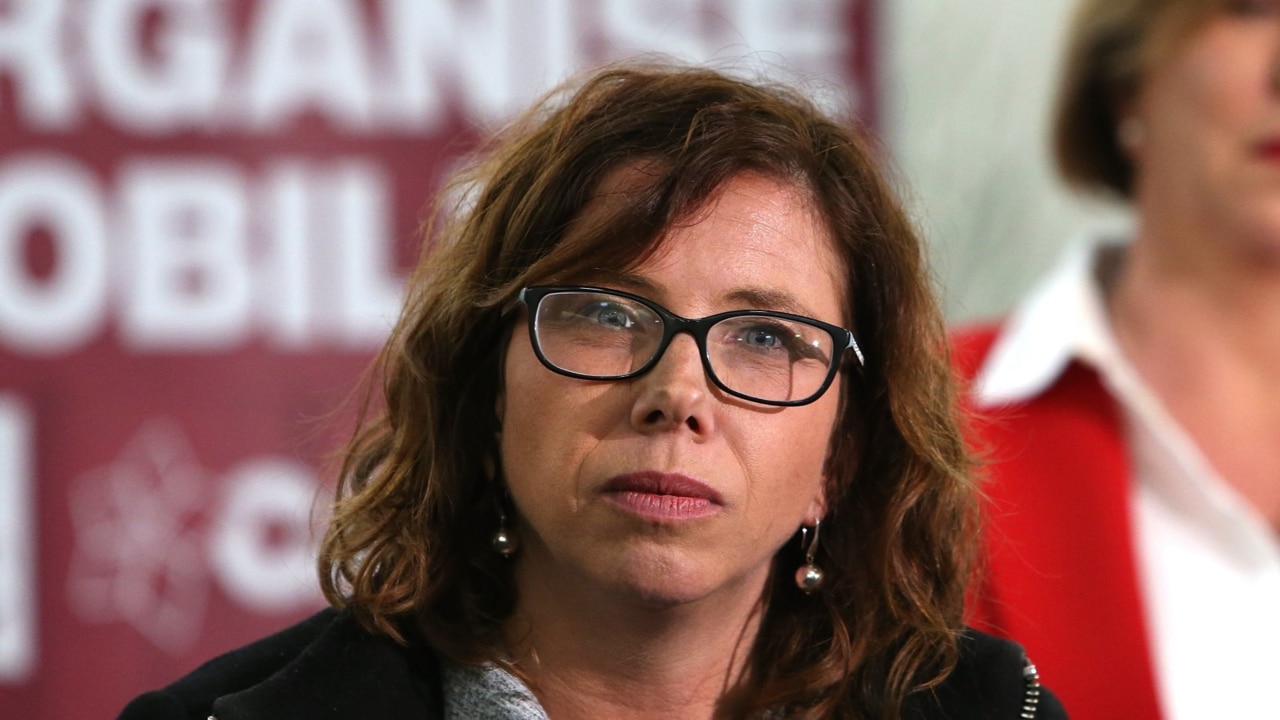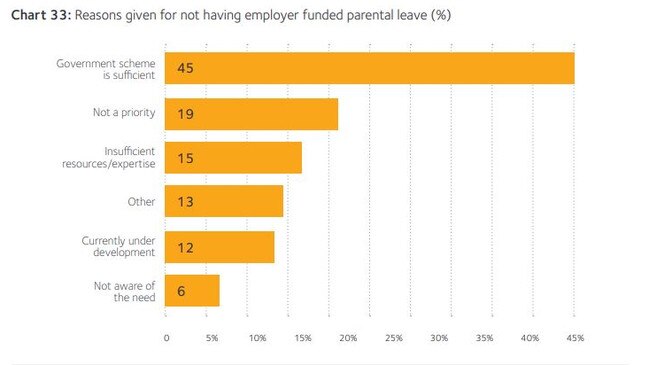Policy change sees number of men taking parental leave skyrocket
This Aussie dad benefited from one of the most generous and gender-equal parental leave policies in Australia.

At Work
Don't miss out on the headlines from At Work. Followed categories will be added to My News.
EXCLUSIVE
The number of men taking paid parental leave at consumer goods giant Unilever has almost tripled since the company took a gender and carer-status neutral approach to its policy.
In 2020, Unilever Australia and New Zealand made its parental leave policy gender neutral and in 2021, it removed the need for the parent taking its 16 weeks of paid parental leave to be the ‘primary carer’.
Administratively, the primary carer of a child is typically defined as the birth mother.
Prior to the change, male employees accounted for just 12 per cent of primary carer parental leave taken in the business.
But in the 2021-2022 financial year, men accounted for 35 per cent of the parental leave taken, with a similar proportion taking parental leave in 2022-2023.

Second-time dad Timothy Danh-Meiklejohn is one Unilever employee who has taken advantage of the change.
Mr Danh-Meiklejohn, a demand fulfilment manager at Unilever ANZ, took leave under the policy earlier this year to look after his two sons, following the birth of his second son, Austin.
Mr Danh-Meiklejohn told news.com.au the experience had a positive and lasting impact on his family dynamic.
“Your children are only little for so long, so unless you take that time to be with them, you miss out on precious years,” he said.
Mr Danh-Meiklejohn has worked at Unilever for just over two years, after a previous stint at the company from 2010 to 2017.
When his first son Liam was born in 2019, his then-employer did not offer paid parental leave, so he took two weeks of what was then called ‘dad and partner leave’ offered by the government at minimum wage and two weeks of annual leave to spend time with his newborn.
But following Austin’s birth last June, Mr Danh-Meiklejohn took the full 16 weeks available under the Unilever policy.
He took the leave starting in February this year when his wife, Leslie, returned to work in her permanent part-time position.

“We found that me staying at home while my wife went back to work helped the transition and provided emotional support for the whole family.”
“I could feel the emotional trauma of going back to work after just 16 weeks of full-time caring, so I cannot fathom how mothers feel, and my wife says she really appreciated having me stay home during this time,” he said.
In addition to forming strong relationships with his sons, sharing their care has led to a more equitable sharing of the mental load and household chores between Timothy and Leslie.
“I was used to just being a provider, but now I am truly a carer too. I never used to worry about whether we have enough diapers at home or if the kids have clean clothes for their playdates. Now, my wife and I share that mental load together,” he said.
While Mr Danh-Meiklejohn has now returned to work full-time he said other Unilever policies, such as hybrid working and four-day work week are leading to a better work/life balance.
“Having the option to work from home means that instead of spending time commuting, I can do all my household chores like laundry during my work week which allows me to spend more quality time together with my family,” he said.

Unilever employees need to take the leave in the year after their child’s birth but do not have to have been employed by the company for a minimum period of time to do so.
In addition, employees are paid at their full rate of pay, are also paid superannuation, and can extend their leave to 32 weeks taken at half pay if desired.
If an employee chooses to extend their leave and take additional unpaid leave, Unilever will continue to pay them super for a maximum of 52 weeks.
In cases where both parents work for Unilever, they are both entitled to take the full 16 weeks of paid leave, and parents who suffer a stillbirth or infant death are entitled to the same paid parental leave allowance.

Head of human resources at Unilever Australia and New Zealand, Shruti Ganeriwala told news.com.au the company is “committed to building a gender-balanced business”.
“We removed the ‘primary carer’ status from our paid parental leave policy in 2021 to create a more equitable system that allows all parents the opportunity to spend more time with their little ones in their first year, and to share the caring responsibilities.”
As of July 1 2023, the Australian government has offered 20 weeks of paid parental leave, which can be shared between a child’s carers as they see fit.
This replaced the previous system of two weeks of so-called dad and partner paid leave and 18 weeks of primary carer paid parental leave, which was only available to someone other than the birth mother under exceptional circumstances.
However, government parental leave is still limited as it is means-tested to a maximum family income of $350,000 and is paid at the minimum wage of $882.80, not the salary an employee has been earning.

The government also doesn’t pay super on its paid parental leave, something the Greens are currently taking it to task over in the Senate.
The government scheme is set to expand by two weeks each year until it reaches 26 weeks in July 2026.
The inadequacy of the government scheme has meant that many employers, such as Unilever, have introduced their own paid parental leave policies that are significantly more generous.
Figures from the Workplace Gender Equality Agency (WGEA) show that 60 per cent of Australian companies have their own parental leave schemes.
Additionally, they found that in 2022, nearly 25% of employers offering paid parental leave have made their schemes carer-neutral by removing the labels of primary and secondary carer.
Unilever has been recognised by WGEA as an Employer of Choice for Gender Equality since 2017.
Originally published as Policy change sees number of men taking parental leave skyrocket




